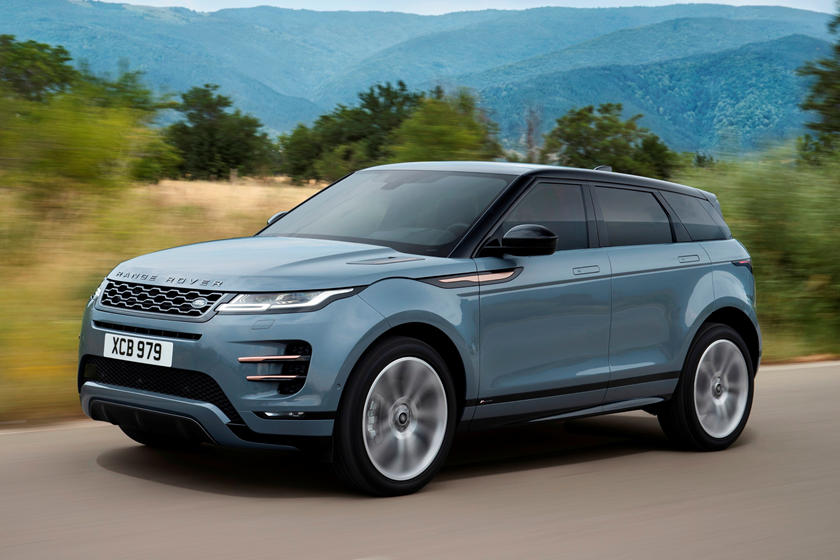New Range Rover Evoque Could Be A Game-Changer
Will the new technology be ready in time?
Despite the financial hardships that continue to plague Jaguar Land Rover, the UK-based automaker is continuing to push forward with a bold research project. Dubbed Project Zeus, JLR is working towards having fuel-cell hydrogen technology as a second type of zero-emissions powertrain alongside battery electrics. At present, the goal is to have the fuel cell tech ready to go by the middle of this decade because it'd be an ideal fit for larger vehicles, specifically SUVs. The only electric vehicle in the entire JLR lineup is the Jaguar I-Pace and this will change upon arrival of the next-generation XJ flagship sedan, due sometime in 2021.
Despite its push battery tech push, JLR doesn't appear to think it's suitable for one of its best-sellers, the Land Rover Range Rover Evoque. Conveniently enough, the next-generation Evoque is scheduled to arrive at around the same time Project Zeus is ready.

According to Autocar, the Evoque could be the first vehicle in the lineup to have a hydrogen fuel cell powertrain. Before that happens, it appears JLR will reveal a fully driveable fuel cell concept vehicle in the coming months. But why does Land Rover seem to prefer hydrogen power over battery electrics? The answer is because hydrogen could be a better fit for SUV customers who like to go off-roading in backcountry regions where there's limited BEV charging stations.
"Hydrogen is an ideal application for the bigger vehicles [in our line-up], because the bigger the car, you get diminishing returns [when using] battery packs," said JLR product engineering chief Nick Rogers. "The amount of energy you can store in a battery for a given amount of weight means you're in a position where you're making the cars that are so heavy, they're using [a lot] of energy just to cart that heavyweight about."
Jaguar, on the other hand, is more likely to continue pursuing BEVs because buyers of its smaller cars are far more likely to remain on the pavement. Eventually, future generations of the Range Rover, Range Rover Sport, and Velar could also adapt hydrogen power as a replacement for diesel powertrains. Not surprisingly, JLR isn't the first mainstream automaker to see the benefits of hydrogen for big SUVs.
BMW is also reportedly at work on an X5-based i Hydrogen Next SUV that could reach production by 2022. Hydrogen SUVs based on the X6 and X7 are also distinct possibilities. Assuming everything goes as planned, the next Evoque could be a significant game-changer for JLR and the luxury SUV segment as a whole. It'd be just the thing to help JLR get back on track.
https://carbuzz.com/news/new-range-rover-evoque-could-be-a-game-changer
New Range Rover Evoque Could Be A Game-Changer
Despite the financial hardships that continue to plague Jaguar Land Rover, the UK-based automaker is contin...
carbuzz.com
'Fuel Cell' 카테고리의 다른 글
| Tesla Model 3 Is The Top-Selling EV In South Korea (0) | 2020.08.19 |
|---|---|
| Could Bloom fuel cells be a solution for maritime emissions issues? (0) | 2020.08.19 |
| 「道の駅なみえ」に水素燃料電池システムを導入 (0) | 2020.08.18 |
| 三菱ふそうのEVトラック「eCanter」試乗 商用車に求められる“運転のしやすさ”とは (0) | 2020.08.18 |
| Fuel cell EVs become more common in heavy industry applications (0) | 2020.08.11 |


